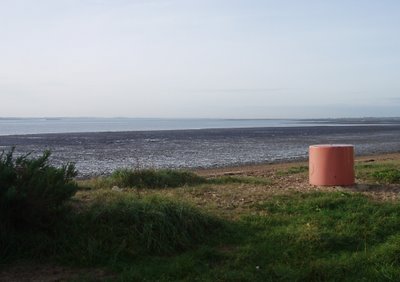Davidov asked in a comment: “Please please tell me 3 things the Republicans have actually done that make you “Republican on most things”? I am truly intrigued.”
Well, I don’t really want to get into ‘what the Republicans have actually done’ (tho’ the abolition of slavery is not to be sneezed at 
The former is quite superficial, and I was actually thinking of these sorts of books, especially the political analysis that suggested that if you were white, college educated and attended church regularly, you were massively more likely to vote Republican. Being that sort of person, I think I would be classed as ‘Republican’. However, that’s all a bit beside the point. The more fundamental issue, for me at least, is why I would identify myself as a Conservative (and see the Republicans as the Conservative party in the US).
I see the fundamental political division as between those who take a ‘tragic’ view of the human condition – meaning one which expects sin to be a significant factor in human affairs – and those who take an ‘Enlightened’ view of the human condition, and who therefore believe human affairs to be perfectible, with human sin able to be removed if the governing circumstances are changed.
I take this understanding of Conservatism as deriving largely from Edmund Burke’s Reflections on the French Revolution. British society was profoundly shocked by that regicide and terror, undertaken in the name of some good ideas (Liberty, Equality and Fraternity), and Conservatism is conditioned by that experience. I would argue that this represents ‘mainstream’ Conservatism in the UK.
Flowing from this, the Conservative perspective tends to scepticism towards “good ideas”, and prefers the tried and tested institutions. More fundamentally, it means a significant distrust of the state – almost a loathing – and a great deal of admiration for Burke’s ‘little platoons’, ie the local institutions and voluntary societies which provide the humus within which a full humanity can grow. The besetting fear for a Conservative is of an over-mighty state, in the hands of a man with a good idea, who causes well-meaning havoc. This is why the US Constitution is a profoundly Conservative document, as the separation of powers, and all associated with it, was designed around the assumption that the leaders elected would be prone to sin – and therefore needed to be kept in check by other bodies (also prone to sin). It was in the balance of competing interests that human freedom and welfare would find their best means of preservation. I am a great fan of the US constitution.
Such a vision of human society depends to a very great extent on the ability of civil society to regulate human conduct, ie the development of social virtues, and for this it looks to support a) the family, and b) the church – for these are where the social regulation of human behaviour is established.
This is the sense in which I’m a Conservative. I believe in human sinfulness (tho’ I see it as redeemable and subject to grace, hence this is a Christian tragic vision, not a Greek tragic vision), and therefore I have a hearty loathing for the state, especially the welfare state and all that has come in its train through the twentieth century.
Paradoxically it also means that whilst I am in principle in favour of “free trade”, I do not equate that with ‘globalisation’ (which destroys the local community) nor with ‘capitalism’ (which destroys the social virtues). Moreover I am thoroughly persuaded that the language of economists is 99.9% idolatrous, that ‘the free market’ (and especially ‘growth’) are the contemporary equivalents of the golden calf, and that such idolatry – as with all idolatry – ends up destroying human life.
All this makes me opposed to the libertarian position (human freedom as the idol, capitulation to the forces of international finance) and also to state socialism (which in practice is indistinguishable from fascism, which is often misdescribed as a Conservative form of government). This might seem strange, but the political position that comes closest to my own (other than Conservatism) is anarcho-socialism, built around communes.
All this ties in very closely and intimately with my theological views, and how I see the church functioning – but that’s another post!
(BTW I could also class my political views as ‘deep green‘ – but that’s a different axis of assessment, I believe, to the one on which ‘Conservative’ stands.)





